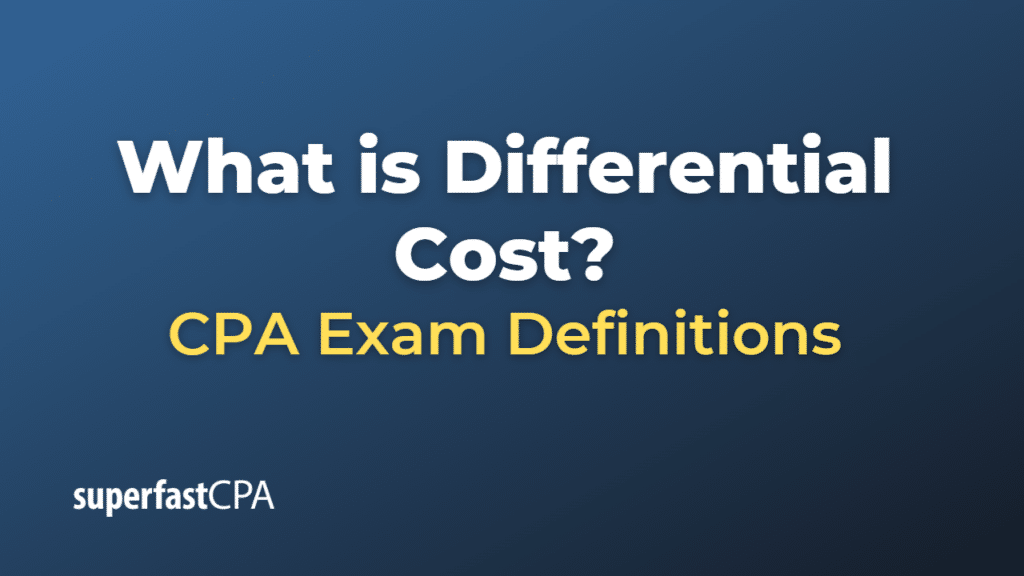Differential Cost
Differential cost, also known as incremental cost, is the difference in cost that results from choosing one option over another in decision-making scenarios. These costs can either increase or decrease depending on the decision made. The concept is used in management accounting to determine the best course of action among several alternatives.
Differential costs are typically variable costs, meaning they can change based on the volume of output or other activity levels. Fixed costs, on the other hand, often remain constant regardless of the decision taken, so they are not usually considered in differential cost analysis (unless the decision could change the level of fixed costs).
It’s important to note that differential cost is relevant for future and prospective events, not for past costs or sunk costs (costs that have already been incurred and cannot be recovered). It’s all about comparing potential future scenarios.
For example, suppose a company is considering whether to keep manufacturing a product in-house or to outsource production to a third party. The differential cost would be the difference between the cost of producing the product in-house and the cost of outsourcing production. This comparison would help the company determine the more cost-effective option.
Example of Differential Cost
Here’s an example to illustrate the concept of differential cost:
Suppose a company produces a product in-house. The costs associated with producing 1,000 units of the product are:
The total cost to produce 1,000 units in-house is thus $11,000.
Now, suppose the company is considering outsourcing production to a third-party manufacturer, which would charge $10,000 for 1,000 units. If the company decides to outsource, it would no longer incur the direct materials, direct labor, or variable overhead costs. However, it would still be responsible for the $1,000 in fixed overhead costs.
So, if the company outsources production, its total costs would be:
- Outsourcing cost: $10,000
- Fixed overhead: $1,000
This totals to $11,000, the same as producing in-house.
However, let’s say the third-party manufacturer increases its price from $10,000 to $11,000 for 1,000 units. The total cost to outsource production would then increase to $12,000 ($11,000 outsourcing cost + $1,000 fixed overhead).
The differential cost of outsourcing vs. in-house production is now $1,000 ($12,000 – $11,000). The company may choose to continue producing in-house to avoid this additional cost.
It’s worth noting that while differential cost is a key factor in such decisions, it’s not the only one. The company might also consider factors like quality control, speed of production, the reliability of the third-party manufacturer, and more.













